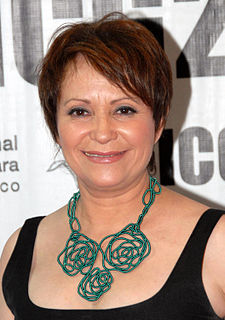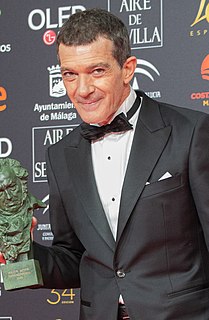A Quote by Quentin Tarantino
A lot of them [Germaqn actors] could come in and we could speak for the next nine hours in English and there would be no problem. It was - but it was - English wasn't the language for them to read poetry in. And there is a - there's a poetic quality to my dialogue.
Related Quotes
English has always been my musical language. When I started writing songs when I was 13 or 14, I started writing in English because it's the language in between. I speak Finnish, I speak French, so I'll write songs in English because that's the music I listen to. I learned so much poetry and the poetic way of expressing myself is in English.
I have a funny relationship to language. When I came to California when I was three I spoke Urdu fluently and I didn't speak a word of English. Within a few months I lost all my Urdu and spoke only English and then I learned Urdu all over again when I was nine. Urdu is my first language but it's not as good as my English and it's sort of become my third language. English is my best language but was the second language I learned.
One of my favorite tricks was taking a page and having the first student translate it from English into whatever language he or she was working on, and the next one would translate it back into English and then into the foreign language, and we'd go around the room and compare the two English versions at the end, and it would be amazing how much survived.
James Joyce's English was based on the rhythm of the Irish language. He wrote things that shocked English language speakers but he was thinking in Gaelic. I've sung songs that if they were in English, would have been banned too. The psyche of the Irish language is completely different to the English-speaking world.
No, obviously, the time goes by, the English gets better. Ever since I met Melanie, that was almost nine years ago now, you have to just speak the language continuously, hone every word. So, and the proof for me of that, was actually in theater. It has to be two hours and 45 minutes on the stage speaking a language that is not your language, and singing.
Most English speakers do not have the writer's short fuse about seeing or hearing their language brutalized. This is the main reason, I suspect, that English is becoming the world's universal tongue: English-speaking natives don't care how badly others speak English as long as they speak it. French, once considered likely to become the world's lingua franca, has lost popularity because those who are born speaking it reject this liberal attitude and become depressed, insulted or insufferable when their language is ill used.






































